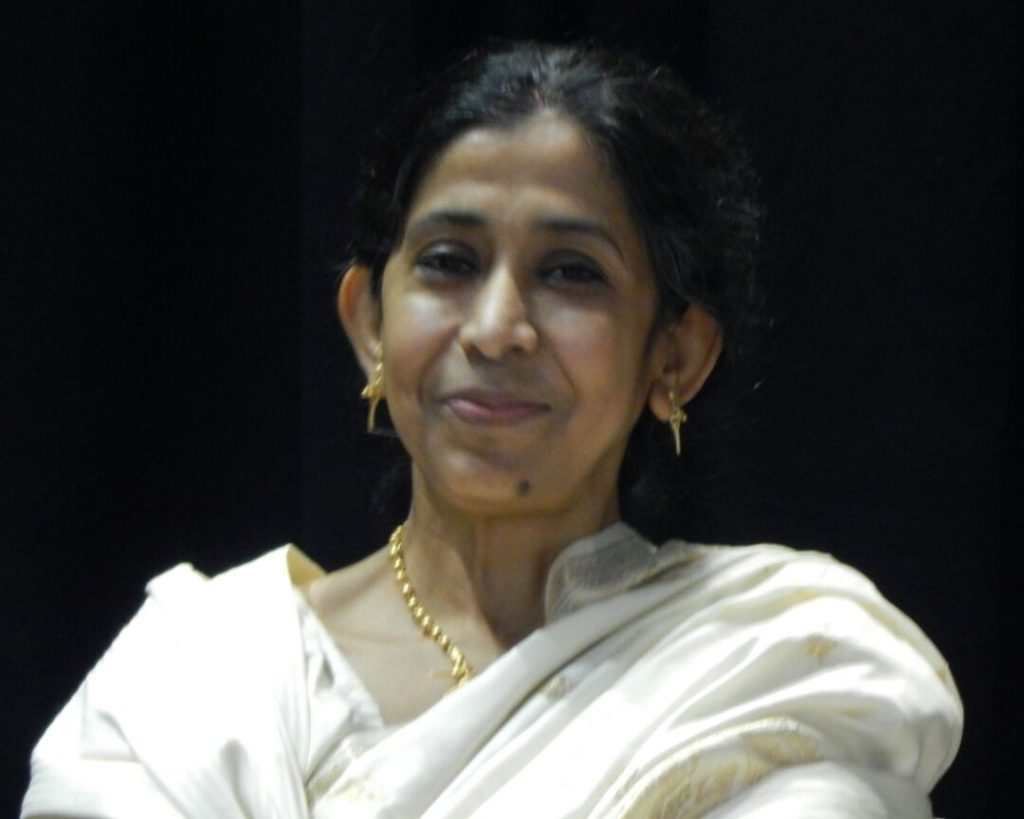The NLS Public Lecture Series | Book Discussion | ‘The Making of Subalterns across History’
Wednesday, December 11, 2024, 5:00 pm
This event stands cancelled on account of the State holiday on Dec 11, 2024.
 In our upcoming public lecture on December 11, 2024, NLSIU will host a talk on ‘The Making of Subalterns across History’ with Prof. Ishita Banerjee-Dube, Professor-Researcher at the Centre for Gender Studies, El Colegio de Mexico, Mexico City. Prof. Dube will discuss the volume titled ‘The Routledge Handbook of Subalterns across History’, Saurabh Dube and Ishita Banerjee-Dube (eds), (Oxon and New York: Routledge, forthcoming 2025) with NLS faculty member Dr. Anwesha Ghosh.
In our upcoming public lecture on December 11, 2024, NLSIU will host a talk on ‘The Making of Subalterns across History’ with Prof. Ishita Banerjee-Dube, Professor-Researcher at the Centre for Gender Studies, El Colegio de Mexico, Mexico City. Prof. Dube will discuss the volume titled ‘The Routledge Handbook of Subalterns across History’, Saurabh Dube and Ishita Banerjee-Dube (eds), (Oxon and New York: Routledge, forthcoming 2025) with NLS faculty member Dr. Anwesha Ghosh.
About the Speaker
Ishita Banerjee-Dube is Professor-Researcher (Distinguished category) at the Centre for Gender Studies, El Colegio de Mexico, Mexico City and a member of the National System of Researchers, (SNII-CONAHCYT, Mexico at the highest level). A historian by training, her research combines ethnographic-history, and perspectives of gender, subaltern and postcolonial studies, to address themes of empire, nation, gender, citizenship in India and Mexico, religion, law and power, caste and politics, food and emotion, time and temporality, and democracy and social justice in India over the 19th to the 21st centuries.
Banerjee-Dube has authored six books including A History of Modern India (Cambridge University Press, 2015); Religion, Law, and Power (Anthem Press, 2007); and Divine Affairs (IIAS, 2001); edited over a dozen volumes among whom feature On Modern Indian Sensibilities (Routledge, 2018); Cooking Cultures (Cambridge University Press, 2016); and Caste in History (Oxford University Press, 2008); published articles in a wide range of acclaimed English and Spanish journals and anthologies such as Subaltern Studies; edited the series ‘Hinduism’ with DeGruyter open, and has held Visiting Professorship and invited Fellowships at institutions in Ecuador, Germany,
India and the US.
Abstract
The brief intervention will offer glimpses of how the project of The Routledge Handbook of Subalterns across History took shape and lay out the key concerns and critical contributions of the Introduction, the forty chapters and the Afterword written by Gayatri Chakravorty Spivak. Not intended as an exegesis of the South Asian Subalterns Studies project, which is taken as a point of reference, the volume explores the critical import of setting to work the study of the subaltern in our vastly transformed, rapidly shifting social worlds. It examines the varied understandings of the subaltern within history and historiography, the critical humanities and the human sciences, and method and theory, grounding the queries in studies that span the parts and slivers of the Antipodes and the Americas, Diasporas and Oceanic worlds, Africa and the Middle East, apart from Europe and many South Asias – “areas” in which the notion of the subaltern continues to find distinct yet substantive articulations. The work also seeks to meaningfully juxtapose the optics of distinct subalterns and the perspectives of overlapping subjects. It traces practices and processes of indigeneity and indenture; gender and caste; slavery and apartheid; age and sexuality; settler- colonialisms and race; the Adivasi and the Dalit; nature and environment; diaspora and blackness; capital and property; science and technology; media and cinema; the body and the embodied; heteronormativity and queerness; dance and literature; theatre and state; nations and migrants; politics and justice; and of course the far-reaching interplay between these (analytical-experiential-affective) arenas.

